VCE Insights
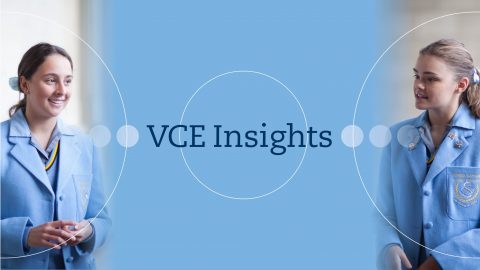
Mrs Tracey McCallum
VCE Coordinator
![]()
Monday 7 May: Girls Talk Parent Seminar 7.00pm
Thursday 10 May: Careers Breakfast (Years 11 and 12) 7.45am – 9.20am (compulsory for Years 11 and 12 students)
Saturday 12 May: Year 12 Formal (parents and students) 7.00pm – 11.30pm
Saturday 19 May: Year 11 Formal (students) 7.00pm – 10.30pm
![]()
Below is a list of subjects with SACs and Outcomes scheduled over the coming weeks. Please note Subject teachers will communicate with your daughter directly regarding the specific date their SAC or Outcome will run.
Term 2 Week 4
Year 12 SACs
- Business Management
- Chemistry
- Studio Arts
- Specialist Mathematics
Year 11 Outcomes
- Business Management
- Biology
- Chemistry
- Chinese SL/A
- English
- French
- Health
- Mathematical Methods
Term 2 Week 5
Year 12 SACs
- Accounting
- Biology
- Chinese SL/SLA
- Geography
- Mathematical Methods
- Music Performance
- Psychology
Year 11 Outcomes
- Accounting
- Biology
- EAL
- Geography
- Philosophy
- Studio Arts
- 20th Century History
![]()
Formal
The Years 11 and 12 students are very excited about their upcoming Formals. Preparations are well under way for what will be a memorable night for students, and in the case of the Year 12 Formal, parents as well. However, It is essential that students do not allow this social occasion to lessen their focus on their academic program.
Upcoming Year Level Meetings
Year 11: A representative from Sex Education Australia will be discussing sexual health.
Year 12: Study Calm with Brad Felstead and a representative from Prahran Police discussing risky behaviour.
Mrs Melissa Braddy, Head of Year 11 and Miss Jeanette Gunn, Head of Year 12
![]()
A Study Tip from the Director of Teaching and Learning
Making the most of your VCE – Debunking a few VCE myths!
The VCE years are particularly demanding. There is no hiding the fact that students are in for some hard work. Many of the students may have pre-conceived views about how to do well this year. There will be lots of advice provided during the year, not all of it accurate. Here are some of the ’myths’ you may have heard about or been provided as advice.
Myth 1: The amount of work you do is directly proportional to your marks.
Yes and no. Of course, you need to put in the effort to do well this year. However, it’s not just about how much time and effort you put in, but also how well you use your time, how you prioritise and structure, how you efficiently study and also whether you’re productive during the time which you have reserved for studying.
Myth 2: Some people are geniuses, I can never be as good as them.
Absolutely not true!! The first step to succeeding in VCE is to have a goal and to be able to imagine it. Not everyone does well, but then again, a lot of people who do well aren’t geniuses. They just work effectively, have a set goal and know what they want to do. Myth 3: I won’t get a high ATAR if I don’t study high scaling subjects.
It makes no sense to only undertake subjects that scale up. Think about it this way. If you were no good at Mathematics and had to select between Mathematical Methods or doing, for example, IT Applications, you might get something like a 35 in Methods and a 43 in ITA, which essentially will scale to around the same score. So, select subjects you think you will do well in and enjoy learning – don’t do it for the scaling. Myth 4: I don’t have the best teacher so I won’t do well.
It doesn’t matter! Year 12 is about you! It’s not about your teacher. You’re blessed to have such a great community here at St Catherine’s and apart from the passionate and committed teachers available, you’ll have plenty of access to other resources. These include books, practice exams, friends and most of all, your own efforts!
Myth 5: Doing lots and lots of practice exams for a subject will get me good marks. Maybe! However, it doesn’t necessarily work that way. Remember, the most important part of undertaking a VCE subject is not doing practice exams, but knowing and understanding the material in the course. The bulk of your time throughout the year should be devoted to learning and perfecting the components of the course rather than completing practice exams. Of course, regular practice at exams questions is essential. Aim for 10-15 during the year for each subject with more being completed closer to the end of the year.
Lastly, a couple of tips about time management:
- Work in blocks of time. Instead of organising your time loosely, organise your time strictly, and follow this! If you decide to study from 6.00pm till 8.00pm, being strict about it has two benefits. Firstly, you’ll be more efficient, no more waiting around till 6.30pm and secondly, you’re more likely to persevere till 8.00pm. You’re also more likely to push yourself a little harder if you get tired at 7.30pm.
- Fit time to subjects. For example, you want to finish the key themes in Macbeth by the end of this week. This is an example of the topic methodology. It is a lot freer, and you have the opportunity to change subjects when you get sick of it. This keeps you concentrated and doing what you most want to do. But be disciplined enough to finish it within the week!
- Rests. Spend 30% of your time at home devoted to resting, eating and other non-study activities.
Remember, at the end of the day it’s really about how well you want to do, working effectively and giving your best. If you do that…it will be a good year for you.
Mr Robert Marshall
Director of Teaching and Learning
![]()
Dates to Diarise in Term 2
- VCE & Careers Expo – 3 May to 6 May, Caulfield Racecourse
- Law Week – 14 to 20 May, various locations. Read more about Law Week here.
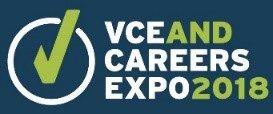 VCE and Careers Expo 2018 All VCE students are encouraged to attend the upcoming VCE & Careers Expo at the Caulfield Racecourse taking place from 3 May – 6 May 2018. There will be over 170 exhibitors providing information on:
VCE and Careers Expo 2018 All VCE students are encouraged to attend the upcoming VCE & Careers Expo at the Caulfield Racecourse taking place from 3 May – 6 May 2018. There will be over 170 exhibitors providing information on:
* Information and resources for the VCE
* Information about university, TAFE and training courses
* Career advice
* Study advice
* International exchange and gap year programs
General admission tickets are $10.00 per person and are valid for all four days. Visit The VCE and Careers Expo to find out more!
 JMC Open Day 2018
JMC Open Day 2018
The Open Day at JMC will provide a campus tour on the first day along with a focused overview on your course of interest, as well as hearing from current students, scholarship winners and the Heads of JMC Academy’s Music, Audio, Animation, Game Design, Film and Television, Digital Design and Entertainment Business Management Departments.
Date: Saturday 12 May 2018
Time: 9.00am – 2.00pm
Venue: 171 Bank Street, South Melbourne
Register at JMC Academy Open Day
 REMINDER: Inside Monash Seminar Series 2018
REMINDER: Inside Monash Seminar Series 2018
Step inside the story of what it’s really like to study at Monash. You’ll hear from a current student, a past student and an academic. It’s the best 90 minutes you could spend researching your course. Bring along your parents too! The Inside Monash Seminar Series commences in April! These seminars provide VCE students with an insight into the courses and career options within discipline areas. The seminars are held in various locations across the Caulfield, Clayton, Peninsula, and City campuses, and seminars with the same title have the same program. All seminars commence at 6.30pm. Exact venue details are available on registration at Inside Monash Seminars.
| DATE | EVENT | CAMPUS |
| Tuesday 8 May | Arts, Criminology, and Global Studies | Clayton |
| Tuesday 8 May | Pharmacy and Pharmaceutical Sciences | Parkville |
| Wednesday 9 May | Public Health and Health Science | Caulfield |
| Thursday 10 May | Advanced Science | Clayton |
| Wednesday 16 May | Biomedical Science, Radiography, Radiation Science, Nutrition | Clayton |
| Thursday 17 May | Education | Clayton |
| Thursday 17 May | Information Technology | Clayton |
| Tuesday 22 May | Occupational Therapy, Physiotherapy, and Paramedicine | Peninsula |
| Thursday 24 May | Education | Peninsula |
| Thursday 24 May | Engineering | Clayton |
| Wednesday 6 June | Nursing and Midwifery | Peninsula |
| Wednesday 20 June | Psychology | Clayton |
| Thursday 21 June | Business | City |
| Thursday 12 July | Science | Clayton |
| Tuesday 14 August | Music | Clayton |
| Thursday 6 September | Information Technology | Clayton |
| Thursday 13 September | Engineering | Clayton |
 REMINDER: ‘My Melbourne Future’ Series
REMINDER: ‘My Melbourne Future’ Series
Senior students should note during the months of May and June, The University of Melbourne will be hosting a series of free ‘My Melbourne Future’ Information Sessions at the Parkville Campus in the early evening.
Aimed at informing prospective students about the courses on offer; hear from current students, academic staff and recent graduates about what it is like to study that degree or course at Melbourne, and the career and personal development opportunities available to graduates. These events will include a Careers of the Future presentation, a sample lecture, student experience insights with Q&A and a courses expo.
Registrations will open soon, but students can pre-register for updates from Melbourne at My Melbourne Future
| Date | Event |
| Tuesday 15 May | Agriculture, Science, Technology, Engineering, and Design |
| Thursday 31 May | Health, and Veterinary Science |
| Tuesday 5 June | Economics, Business, Law, Humanities, Arts, Social Sciences |
| Thursday 7 June | Creative and Performing Arts |
| Tuesday 14 June | Economics, Business, Humanities, Social Sciences, and Education |
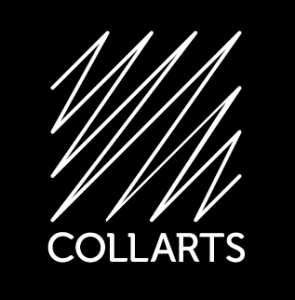 Collarts
Collarts
Collarts is an independent tertiary education college focused on creating real career pathways into the creative sector for students. With over 30-years experience, Collarts delivers industry-based learning coupled with strong personal and professional development.
Collarts offers fully-credited two-year Bachelor Degrees or Diplomas in:
- Music Performance
- Audio Production
- Entertainment Management
- Music Production
- Content Creation
- Fashion Marketing
- Entertainment Journalism (Diploma only)
Browse Collarts to learn more about this college.
 National Institute of Dramatic Art (NIDA)
National Institute of Dramatic Art (NIDA)
The National Institute of Dramatic Art (NIDA) is an internationally recognised institute that offers education and training in a range of courses including acting, writing, staging, movement, voice, costume, and production design.
All application, audition, interview, and project requirements for NIDA’s tertiary programs are now available on the NIDA website. Visit NIDA to learn more!
 Associate Degree in Engineering Technology
Associate Degree in Engineering Technology
RMIT University offers the Associate Degree in Engineering Technology which is an excellent two-year degree for students undecided which specialised area of Engineering they wish to study. Students who achieve a grade point average (GPA) of at least 2.0 out of 4.0 are guaranteed entry with two years of credit (equivalent to 192 credit points) into the following RMIT programs relevant to their study major.
This pathway course is also often used by students who do not attain the minimum English/EAL and Mathematical Methods study scores, or if their ATAR is not high enough to enter the bachelor degree. Students keen on telecommunications engineering can also use this pathway course, by completing the Electrical and Electronics major.
- Bachelor of Engineering (Advanced Manufacturing and Mechatronics) (Honours)
- Bachelor of Engineering (Aerospace Engineering) (Honours)
- Bachelor of Engineering (Automotive Engineering) (Honours)
- Bachelor of Engineering (Civil and Infrastructure) (Honours)
- Bachelor of Engineering (Computer and Network Engineering) (Honours)
- Bachelor of Engineering (Electrical and Electronic Engineering) (Honours)
- Bachelor of Engineering (Electrical Engineering) (Honours)
- Bachelor of Engineering (Mechanical Engineering) (Honours)
- Bachelor of Engineering (Sustainable Systems Engineering) (Honours)
- Bachelor of Engineering (Telecommunications Engineering) (Honours)
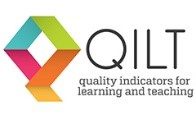 Quality Indicators for Learning and Teaching (QILT)
Quality Indicators for Learning and Teaching (QILT)
The Quality Indicators for Learning and Teaching (QILT) website is now three years old. The aim of this website is to assist students in making informed choices about their higher education options by bringing together survey data from all Australian universities, allowing students to compare student experience and job outcomes.
So, students are able to compare the student experience, whether domestic or international, between universities, and also learn more about employment outcomes of the different institutions.
The QILT survey program also includes the Employer Satisfaction Survey (ESS) which is an important survey where over 4,000 employers are asked to rate their newly employed university graduates, based on several criteria, and thereby ranking universities.
The 2017 ESS Final Report is well-worth a browse.
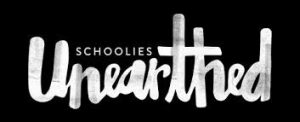 Schoolies Unearthed
Schoolies Unearthed
Since 1991 Schoolies Unearthed have been creating extraordinary people through extraordinary travel experiences. This year, over 2,000 students will be travelling with Schoolies Unearthed to over 30 incredible destinations. Antipodeans offers a range of programs, one of which is Schoolies Unearthed – a different way to do schoolies. Newly graduated Year 12 students get to travel overseas with a team of other schoolies, explore new and vibrant parts of the world whilst contributing to a sustainable community project. Accompanied by an Unearthed leader, this is a chance to embrace a totally new culture, discover some incredible food and live like the locals do – all while having the time of your life. Find out more at Schoolies Unearthed – a different way to do schoolies.
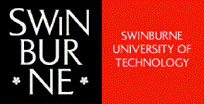 Swinburne University Industry Partners
Swinburne University Industry Partners
For over 50 years, Swinburne University has been working closely with industry to create strong and mutually beneficial partnerships. From multi-national corporations to small businesses, start-ups to not-for-profit organisations, Swinburne offers a wide-range of partnership opportunities in almost every industry sector.
Browse some of the organisations that have benefited by opening their doors to Swinburne students at Swinburne University Industry Partners.
Swinburne has particularly partnered with several companies with diverse interests in the medical technology space – Biodevices Industry Partners.
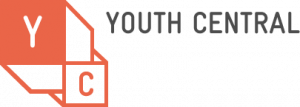 Youth Central Website
Youth Central Website
Youth Central is the Victorian Government’s website for young people aged 12 to 25, filled with great information about life from every angle, including:
- How to find a job
- Your study options
- Moving out of home
- Getting your driver’s license
- Travelling around Australia or overseas
For more information, browse Youth Central
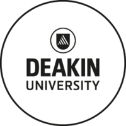 Snapshot of Deakin – Waurn Ponds Campus in 2018
Snapshot of Deakin – Waurn Ponds Campus in 2018
- The Geelong Waurn Ponds Campus is home to the Geelong Technology Precinct. The precinct focuses on Deakin’s core research capabilities in materials, biotechnology, chemistry, and environmental engineering, along with regional strengths in manufacturing and agri-processing.
- The Geelong Waurn Ponds Campus is also home to the CADET building – the Centre for Advanced Design in Engineering Training. The $55 million state-of-the-art facility houses some of the most advanced and future-focused simulation and visualisation systems, purpose-built interactive laboratories and learning environments in the country.
- 2015 saw the first intake of students to the new four-year Medical Imaging course offered at the Waurn Ponds Campus – Medical Imaging. The department is a fully equipped x-ray department, and students have access to adult-sized human models designed to be x-rayed and reflect human-like responses to x-rays.
- Deakin University’s Faculty of Health offers Australia’s first accelerated optometry course. Offered as a combined course, the Bachelor of Vision Science/Master of Optometry – Optometry. Students have access to a dedicated simulated optometry store for simulated exercises. Deakin Optometry is housed in the Regional Community Health Hub (REACH) building.
- Deakin’s School of Exercise and Nutrition Sciences – Exercise & Sport Science is also in the REACH building. Again, Exercise & Sport Science students have access to state-of-the-art equipment. Of note is the added fact that Deakin’s School of Exercise and Nutrition Sciences is ranked the number one sport science school in the world, according to the Academic Ranking of World Universities (ARWU).
- The School of Medicine – School of Medicine is another state-of-the-art facility at the Deakin Waurn Ponds Campus. It opened in 2008 and offers a four-year graduate medical degree, with two years of pre-clinical education at the University campus in Waurn Ponds, and then two years clinical education and experience in one of its clinical schools – hospitals as far reaching as Ballarat to Box Hill.
 Snapshot of the University of Queensland (UQ) in 2018
Snapshot of the University of Queensland (UQ) in 2018
- UQ is a one of Australia’s leading research and teaching institutions
- UQ is one of only three Australian members of the global Universitas 21
- UQ is consistently ranked well inside the top 100 of more than 10,000 universities worldwide – International Rankings
- UQ is located in and around Brisbane, and the university has teaching and research sites throughout Queensland, and its major campuses are at St Lucia, Gatton and Herston – Campuses & Locations
- There are six faculties at UQ, which are responsible for academic programs and decisions regarding a student’s pursuit of their academic program – Faculties
- At UQ students can choose from an extensive range of undergraduate programs, many of which can be ‘customised’ by major – and minor – fields of study. Programs are organised through schools and faculties, but sometimes a student can ‘mix and match’ between them with electives and dual degrees – Undergraduate Courses & Programs
- UQ has a diverse student exchange program, and students can study overseas for up to one year while gaining credit towards their UQ degree. UQ has 200 exchange partners in 40 countries – UQ Abroad
- Students keen on learning another language can enrol in one of over 80 different courses through UQ’s Institute of Modern Languages – Institute of Modern Languages
- There are over 190 clubs and societies at UQ, all aimed at expanding a student’s social life, playing an important role in the UQ student experience – Clubs and Societies
- Students at UQ are encouraged to undertake experiences beyond the classroom during their degree through the UQ Advantage Program. They participate in a range of co-curricular activities and workshops that help them gain a better understanding of the world and develop key competencies that employers value. It is a great way to get recognition for ‘non-academic’ experiences such as student exchange, mentoring, and undergraduate research programs – UQ Advantage Program
- UQ has a dedicated website designed for future students to find answers to all the questions they might have about studying at UQ – UQ Answers
- UQ has excellent facilities including a state-of-the-art multi-purpose learning space for first-year engineering students called the Engineering Learning Centre – Engineering Learning Centre . The School of Veterinary Science complex – Veterinary Science and the Pharmacy Australia Centre of Excellence (PACE) precinct which houses the School of Pharmacy – Pharmacy
- UQ has 10 residential colleges – Accommodation
- UQ offers a range of scholarship options to make university study more affordable, ranging in value up to $12,000 per year for the VC Scholarship – Scholarships
 Engineering Degrees in Victoria
Engineering Degrees in Victoria
Listed below are over 30 engineering degrees offered at most universities in Victoria. Students should note that unless otherwise indicated* all engineering degrees require at the very least English or EAL, and Maths: Mathematical Methods (CAS). Courses with an * also require Chemistry or Physics.
For a comprehensive list of all courses, their prerequisites and double degrees on offer, visit VTAC
| INSTITUTION | COURSE | MAJOR STUDIES | ATAR 2018 |
|
DEAKIN |
Civil | Civil engineering management, Computer-aided design (CAD), Construction, Engineering (civil), Engineering (fluid), Engineering design, Geotechnical engineering, Materials engineering, Structural engineering, Transportation, Water resources engineering. |
71.65 (M) 65.65 (G) |
| Electrical & Electronics | Circuits and electronics, Computer-aided design (CAD), Control systems, Data communications, Electrical and electronic engineering and technology, Electrical engineering, Electronic engineering, Energy efficiency and demand management, PLC and SCADA, Power system protection, Power systems, Renewable energy, Smart distributions and transmission systems, Smart grid. | 71.10 (M) 71.85 (G) |
|
| Environmental | Environmental engineering, Environmental protection and management, Hydrology, Marine ecosystems, Sustainable infrastructure engineering, Waste management, Water engineering. | 73.50 (G) | |
| Mechanical | Computer-aided design (CAD), Control systems, Engineering (fluid), Engineering (mechanical), Materials engineering, Mechanical design, Systems design. | 69.60 (M) 65.00 (G) |
|
| Mechatronics | 3D printing, Advanced manufacturing, Artificial intelligence, Circuits and electronics, Computer-aided design (CAD), Control systems, Data communications, Electrical and electronic engineering and technology, Electrical engineering, Electronic engineering, Engineering (mechanical), Engineering (mechatronic), Mechanical design, Mechatronics design, Robotics, Virtual and augmented reality. | 70.05 (M) 69.95 (G) |
|
| Software | Artificial intelligence, Computer software, Cyber security, Cyber-physical systems, Data analytics, Data capturing technologies, Data structures and algorithms, Database programming, Embedded systems development, Internet-of-Things, Object-oriented programming, Programming, Robotics Applications, Robotics software, Software architecture, Software design, Software engineering, Software testing, Usability and user experience engineering, Web application development. | 66.15 (M) | |
| FEDERATION G – Gippsland B –Ballarat |
Civil | Civil Engineering, Construction Management, Environmental Engineering, Geotechnical Engineering, Structural Engineering, Transport Engineering, Water Resources Engineering. | n/a (G) n/a (B) |
| Mechanical | Automotive and Energy Efficiency, Design Engineering, Manufacturing Engineering, Mechanical Engineering, Mechanical and Industrial Engineering Technology, Mechanics, Robotics, Vibration and Machine Dynamics. | n/a (B) | |
| Mechatronic Systems | Computing Engineering, Electronics Engineering, Engineering Management, Manufacturing, Mechanical Engineering, Mechatronics, Robotics, Sensing and Artificial Intelligence, Systems Control. | n/a (G) | |
| Mining | Drilling and Blasting, Mine Power and Services, Mine Ventilation, Mineral Deposit Evaluation and Processing, Mining Engineering, Rock Fragmentation, Rock Mechanics, Surface Mining Operations and Equipment, Underground Production Systems. | n/a (B) | |
|
LA TROBE M – Melbourne |
Civil | Civil engineering. |
60.55 (M) 61.70 (B) |
| Industrial Engineering | Engineering (industrial), Engineering design, Engineering enterprise, Engineering industry 4.0, Engineering innovation, Project management, Systems engineering. |
60.05 (M) n/a (B) |
|
|
MONASH Cl – Clayton |
Aerospace * | Aerodynamics, Aeronautical, Aerospace Engineering, Avionics, Engineering. | 91.10 (Cl) |
| Engineering * | Aerospace engineering, Chemical engineering, Civil engineering, Electrical and computer systems engineering, Engineering, Environmental engineering, Geological engineering, Materials engineering, Mechanical engineering, Mechatronics engineering, Mining engineering, Oil and gas engineering, Renewable energy engineering, Software engineering. | 91.05 (Cl) | |
| Software * | Engineering, Software engineering. | 91.75 (Cl) | |
|
RMIT C – City
RMIT C – City
|
Advanced Manufacturing & Mechatronics | Advanced manufacturing processes, Advanced robotics, Automatic control systems, Autonomous systems, Design for assembly and automation, Embedded systems, Engineering computing, Engineering mechanics, Manufacturing systems, Manufacturing systems modelling, Mechatronic design. | 80.00 (C/B) |
| Aerospace | Aerodynamics, Aerospace engineering, Aerospace maintenance, Aerospace science and spacecraft, Aircraft design, Aircraft systems, Aviation, Computer modelling, Mechanics (applied), Mechanics (flight), Mechanics (fluid), Mechanics (solids), Mechanics (structural). | 85.05 (C/B) | |
| Automotive | Computer-aided engineering and design, Dynamics and control, Energy conservation and renewable energy, Engineering mathematics, Fluid mechanics, Industrial aerodynamics and computational fluid dynamics, Mechanics of machines, Mechatronics, Solid mechanics and materials, Thermodynamics, Vehicle handling and control, Vehicle noise and vibration, Vehicle power system and vehicle body design. | 80.90 (C/B) | |
| Biomedical Any maths |
Bioinformatics, Biomedical Signal and Image processing, Biomedical instrumentation, Cell Biology, Chemistry, Circuit Theory, Engineering biomechanics and biomaterials, Human physiology, Implant and Rehab Engineering, Physics, Programming. | 85.55 (C) | |
| Chemical * | Chemical sciences, Environmental, Food science and biotechnology, Metallurgical, Petroleum, Rheology. | 80.00 (C) | |
| Civil & Infrastructure | Civil engineering management, Computer modelling, Construction management, Engineering (civil), Engineering (environmental), Engineering (geoengineering), Engineering (structural analysis and design), Engineering (transport engineering), Irrigation and water management, Mechanics (structural), Project management, Risk analysis and management, Roads and road design, Software applications, Water quality management, Water resources engineering. | 85.05 (C/B) | |
| Computer & Network | Computer and network security, Computer engineering, Computer networks, Embedded systems, Internet communications, Microprocessor, Microprocessor control systems, Mobile and cloud networks and computing, Multimedia engineering (audio), Multimedia engineering (image), Multimedia engineering (speech), Multimedia engineering (video signal processing), Network engineering, Network infrastructure design and performance, Network management and software-defined networking, Reconfigurable processors and devices, Signal and systems, Telecommunications (systems and networks), Wireless technologies. | 80.35 (C) | |
| Electrical | Control systems, Electrical distribution, Electrical energy conversion, Electrical engineering, Electrical transmission, Industrial automation, Microprocessor control systems. | 80.00 (C) | |
| Electrical & Electronic | Circuits and electronics, Communication systems, Computer engineering, Computer networks, Control systems, Digital and analogue electronics, Electrical systems, Electronic systems, Photonics, Signal processing, Wireless technologies. | 80.60 (C) | |
| Environmental | Chemical engineering, Civil engineering, Environmental analysis, Environmental engineering, Geology, Hydrogeology, Hydrology, Infrastructure management, Land contamination, Pollution control, Process engineering, Sustainability, Transport engineering, Urban systems, Waste water treatment, Water engineering, Water management. | 81.35 (C/B) | |
| Mechanical | Computer-aided engineering and design, Dynamics and control, Energy conservation and renewable energy, Engineering and society, Engineering mathematics, Fluid mechanics, Industrial aerodynamics and computational fluid dynamics, Manufacturing, Mechanical design, Mechanics of machines, Mechatronics, Professional research project, Solid mechanics and materials, Thermodynamics. | 80.30 (C/B) | |
| Software Engineering | Algorithms and data structures, Artificial intelligence, Computer architecture, Computer operating systems, Database systems, Industrial collaboration and experience, Networks and data communications, Object-oriented design, Object-oriented modelling, Object-oriented programming, Object-oriented software engineering, Operating systems, Problem solving, Programming, Programming (C), Programming (Java), Project management, Software development, Software engineering, Software engineering practices. | 90.05 (C) | |
| Sustainable Systems | Advanced life cycle and systems assessment, Chemistry fundamentals, Computer-aided design, Electrical energy systems, Engineering Capstone Project, Engineering Computing, Fluid mechanics, Intelligent transport systems, Manufacturing management, Mathematics, Statistics, Sustainable energy systems, Sustainable engineering logistics systems, Sustainable engineering materials, Sustainable system design, Sustainable transport systems, Systems engineering principles, Thermodynamics. | 80.05 (C/B) | |
| Telecommunications | Antennas, Circuits and electronics, Communication systems and theories, Digital signal processing, Electronic systems, Electronics, Engineering (communication), Engineering (electronics), Engineering (telecommunications), Engineering design, Fibre optical technology, Industrial and Defence radar technologies, Internet Engineering, Modern network engineering, Network security, Optoelectronics and Photonics, Satellite communications, Telecommunications (transmission systems), Wireless and Mobile communications, Wireless technologies. | n/a (C) | |
|
SWINBURNE H – Hawthorn
* Professional # Any maths required R.C. – Range of Criteria used for selection |
Engineering | Architectural engineering, Biomedical engineering, Civil engineering, Construction engineering, Electrical and electronic engineering, Mechanical engineering, Product design engineering, Robotics and mechatronics, Software engineering, Telecommunications engineering. |
76.10 (H) 85.00 (H) * |
| Engineering Practice # | Biomedical engineering, Civil engineering, Construction engineering, Electrical and electronic engineering, Industry 4.0, Internet of things and people, Mechanical engineering, Product design engineering, Products designed for people, Robotics and mechatronics, Smart cities, Software engineering, Telecommunications engineering. | R.C. (H) | |
|
VICTORIA FP – Footscray Park
# Engineering degrees at VU require any maths |
Architectural # | Architecture, Building (design), Building (technology), Building law and building practice, Computer-aided design, Construction, Design, Engineering, Engineering (architectural), Engineering (electrical), Engineering (mechanical), Environment and sustainability, Environmental comfort and life safety design, Green building design, Management, Sustainable building design. | n/a (FP) |
| Civil # | Civil engineering, Computer-aided design, Construction, Construction management, Environmental engineering, Geosciences, Hydraulics and hydrology, Land and water management, Management, Project management, Roads and road design, Structural engineering and design, Surveying, Sustainable development, Transport and traffic engineering, Water resources engineering. | n/a (FP) | |
| Electrical & Electronic # | Digital and analogue electronics, Electrical engineering management, Engineering (communication), Engineering (computer systems), Engineering (computer), Engineering (electrical generation), Engineering (electrical), Engineering (electronics), Engineering design, Microelectronics, Microprocessors, Telecommunications. | n/a (FP) | |
| Electrical & Sports # |
Actuators, Biomechanics, Data analysis, Electrical and electronic engineering, Sensors, Software development, Wearable electronics. | n/a (FP) | |
| Mechanical # | Automotive design, Computer-aided design, Design (product development), Engineering, Engineering (manufacturing), Engineering (mechanical), Industrial engineering, Manufacturing management, Mechanical design, Mechanical engineering, Mechanics (fluid mechanics), Mechanics (solid mechanics), Production processes, Project management. | n/a (FP) |
 Biomedicine/Biomedical Degrees in Victoria
Biomedicine/Biomedical Degrees in Victoria
A Biomedicine or Biomedical Science degree is offered at a number of universities and is often regarded as an excellent pathway degree to graduate medicine. Visit VTAC for more information on these and other courses – including double-degrees.
| INSTITUTION | COURSE NAME | VCE PREREQUISITES | MAJOR STUDIES |
| ACU M – Melbourne |
Biomedical Science ATAR: 59.80 (M) |
Units 3 and 4: a study score of at least 30 in English (EAL) or at least 25 in English other than EAL; and a study score of at least 25 in any Mathematics. | Biomedical Science. |
|
DEAKIN M – Melbourne G – Waurn Ponds |
Biomedical Science ATAR: 80.10 (M) 74.50 (G) |
Units 3 and 4: a study score of at least 25 in English (EAL) or at least 20 in English other than EAL. | Anatomy, Biochemistry, Bioinformatics, Biology, Biomedical science, Bioscience, Cell biology, Environmental health, Genetics, Human biology, Immunology, Infection and immunology, Medical biotechnology, Medical genomics, Medical microbiology, Medical research, Medical science, Microbiology, Molecular and cell biology, Molecular and human genetics, Molecular biology, Pathophysiology, Pharmaceutical Science (Waurn Ponds), Physiology. |
| FEDERATION B – Berwick Gi – Gippsland Ba – Ballarat |
Biomedical Science ATAR: n/a |
Units 3 and 4: a study score of at least 18 in any English; Units 3 and 4: a study score of at least 18 in any Mathematics or at least 18 in any Science. | Anatomy and Physiology, Biochemistry, Biology, Chemistry, Genetic Sciences, Health sciences, Medical microbiology, Medical science, Microbiology, Pathophysiology, Pharmacology, Public health, Statistics. |
| LA TROBE M – Melbourne |
Biomedicine ATAR: 60.05 (M) |
Units 3 and 4: a study score of at least 30 in English (EAL) or at least 25 in English other than EAL. | Biochemistry, Biomedical Science, Biomedicine, Biosciences, Cell and molecular biology, Chemistry, Health, Human Physiology, Medical science. |
| MONASH C – Clayton |
Biomedical Science ATAR: 92.00 (C) |
Units 3 and 4: a study score of at least 35 in English (EAL) or at least 30 in English other than EAL; Units 3 and 4: a study score of at least 25 in Chemistry; Units 3 and 4: a study score of at least 25 in one of Maths: Mathematical Methods (any), Maths: Specialist Mathematics or Physics. | Anatomy and physiology, Biochemistry, Bioinformatics, Biomedical science, Biomedicine, Biophysics, Biotechnology, Genetics, Health sciences, Human biology, Human sciences, Microbiology, Molecular and cell biology, Neurobiology, Pathology, Pathophysiology. |
| RMIT B – Bundoora |
Biomedical Science ATAR: 75.75 (B) |
Units 3 and 4: a study score of at least 30 in English (EAL) or at least 25 in English other than EAL; Units 3 and 4: a study score of at least 20 in Chemistry; Units 3 and 4: a study score of at least 20 in one of any Mathematics or Physics. | Anatomy, Biochemistry, Bioinformatics, Biomedical science, Biotechnology, Cell biology, Cell physiology, Human physiology, Medical science, Microbiology, Molecular medicine and biotechnology, Neurobiology, Pathology. |
| UNI MELBOURNE P – Parkville |
Biomedicine ATAR: 95.00 (P) |
Units 3 and 4: a study score of at least 30 in English (EAL) or at least 25 in English other than EAL; Units 3 and 4: a study score of at least 25 in Chemistry; Units 3 and 4: a study score of at least 25 in one of Maths: Mathematical Methods (any) or Maths: Specialist Mathematics. | Biochemistry and molecular biology, Bioengineering systems, Biotechnology, Cell and developmental biology, Genetics, Human structure and function, Immunology, Microbiology and immunology, Neuroscience, Pathology, Pharmacology, Physiology. |
|
VICTORIA F – Footscray St. A – St. Albans |
Biomedical Science ATAR: n/a (St. A) |
Units 3 and 4: a study score of at least 25 in English (EAL) or at least 20 in English other than EAL; Units 3 and 4: a study score of at least 20 in two of Biology, Chemistry, Health and Human Development, any Mathematics or Physical Education. | Anatomy and physiology, Cell biology, Cell physiology, Chemistry and biochemistry, Dietary and nutritional studies, Functional anatomy, Human biology, Immunology, Molecular and human genetics, Neuroscience, Pathophysiology, Pharmacology, Research methods. |
|
Biomedicine ATAR: 80.30 (F) |
Units 3 and 4: a study score of at least 30 in English (EAL) or at least 25 in English other than EAL; Units 3 and 4: a study score of at least 25 in two of Biology, Chemistry, any Mathematics or Physics. | Anatomy and physiology, Biochemistry and molecular biology, Cell and developmental biology, Cell biology, Chemistry and biochemistry, Dietary and nutritional studies, Functional anatomy, Genetics, Health informatics, Human biology, Human structure and function, Immunology, Microbiology, Molecular and human genetics, Neuroscience, Pathophysiology, Pharmacology, Physiology, Research methods. |


